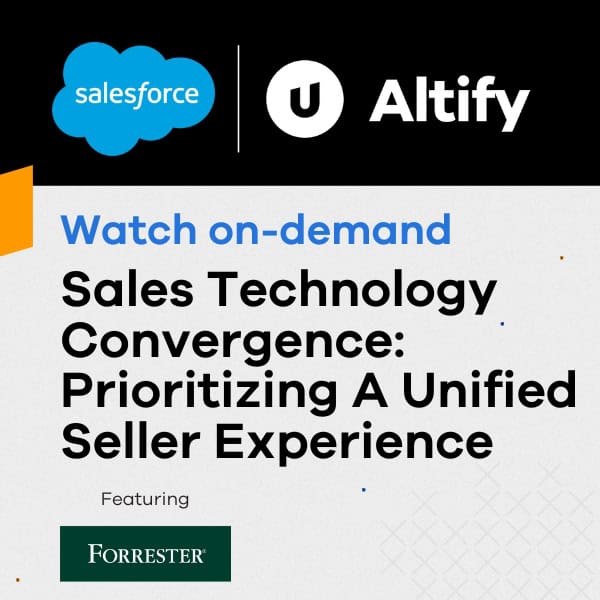As you may have seen elsewhere, I spent a lot of the summer of 2017 writing my new book.
The book – Digital Sales Transformation in a Customer First World – is definitely my most ambitious project yet. At 540 pages it is not a quick read, but based on the early reviews I’m told it is packed with value – so I am obviously pleased about that.
I thought long and hard about who should set the stage for the book. Actually it was not that long, and not that hard. When I started thinking about it the answer was obvious: Mike Rosenbaum.
Mike is one of the most important leaders in the global Cloud industry. As EVP CRM Apps at Salesforce, his hand is on the tiller guiding the future vision for millions of the world’s knowledge workers. I am fortunate to have known Mike for many years. Even as his role in Salesforce expanded to its current scale and scope, Mike has always remained gracious and generous with his time. He is one of the world’s gentlemen. I am proud that Mike agreed, without fuss or hesitation, to write the Foreword for my book. A huge expression of gratitude is due to Mike, and also to Kate Wesson at Salesforce, who shepherded and supported this effort.
Mike Rosenbaum’s Foreword
We are living in an era of unprecedented change. An obvious statement, sophomoric even, but it’s true. Technology has had a sweeping impact on society and nothing has been left untouched. Business models have been indelibly upended. Communication is constant – our daily lives are punctuated with texts, emojis and videos that capture every moment, from the mundane to the magical. How we communicate, how we relate to each other and what we expect from each other has changed forever. It’s also changed what we expect from companies, how we expect to relate to them and communicate with them, and what it means to be a customer.
At Salesforce, we call this the ‘Age of the Customer.’ In this book, Donal Daly calls it ‘The Customer First World.’ It’s the idea that information technology advances (the cloud, mobile, social, artificial intelligence, and whatever we think of next) have ushered in a new type of customer expectation. And the businesses that succeed will reorganize to put customers at the center of everything they do. Customer centricity isn’t radical. Family-run restaurants, neighborhood hardware stores and local coffee shops have practiced customer centricity for decades – they just called it ‘good business.’ But, the explosion of information technology has changed everything. Not just what’s possible but what’s expected and customer expectations are now sky-high. We want instant answers, fast customer service and effortless, frustration-free experiences that just work. We expect great service wherever we go – whether we’re ordering coffee at our local independent coffee shop or using the Starbucks mobile app. And when we don’t have a good experience, we’re underwhelmed, we’re annoyed, we tweet about it and we remember it.
The forward thinking companies that put customers first are setting a new standard that their competitors must compete with. Like 80 million others,[1] I’m an Amazon Prime subscriber and at least once a week, I order something that usually arrives within one or two days. There is hardly ever a problem and when occasionally there is, fixing it is as easy as opening my Amazon app. Now ordering something from anywhere else is a risk, because a high bar has been set. I’m very happy with that bar and anything below that bar is frustrating. On a rational level, I understand that Amazon has a world-class distribution network and an incredibly talented information technology organization that smaller companies can’t match. But on an emotional level, the bar has been set and I really want that consistently ideal experience. I am a demanding, exacting and somewhat irrational customer. We all are.
Amazon’s not unique. It has embraced technology (and supply chain, distribution and logistics) to create an amazing customer experience, but so have many other companies. Warby Parker has reinvented the once-painful process of buying glasses. Casper has made it possible to order a high-end bed online, saving you (and your marriage) a Saturday of mattress haggling. Tesla has redefined luxury cars – everything from the manufacturing to the purchasing experience – making their dealerships like Apple Stores, a place where high-pressure sales don’t exist and Tesla owners and enthusiasts are equally welcome.[2]
These brands and many others have digitally transformed so much so that they are actually technology companies. Information technology is such a disruptive force that every company today is a technology company, whether they want it or not.[3] Almost every company that I meet with wants to digitally transform but faces trade-offs: legacy systems, competing priorities, budget, change management, the list goes on and on. There are always countless reasons why it’s hard to change. But I urge every single one of them – and you – to get started. Now. Today. Find a project where you can move and move fast. Do that one project, chalk up a win and then do another and another and another. You won’t regret it. In fact, you’ll be amazed by what you can accomplish.
Mike Rosenbaum
EVP, CRM Apps, Salesforce
[1] BusinessInsider, ‘Amazon has around 80 million reasons to be excited for Prime Day,’ July 10, 2017.
[2] Fortune, ‘Elon Musk’s Angry Customer Twitter Thread Is a Gold Mine of Customer Service Advice’, September 18, 2017.
[3] CNBC, ‘Every Company is a Tech Company now (yes, even Blue Apron),’ August 10, 2017.


